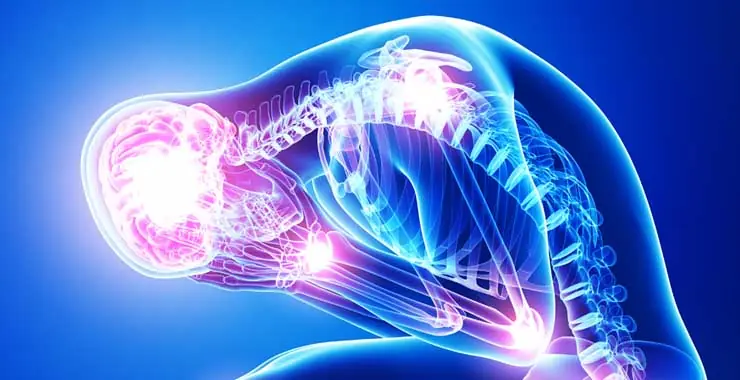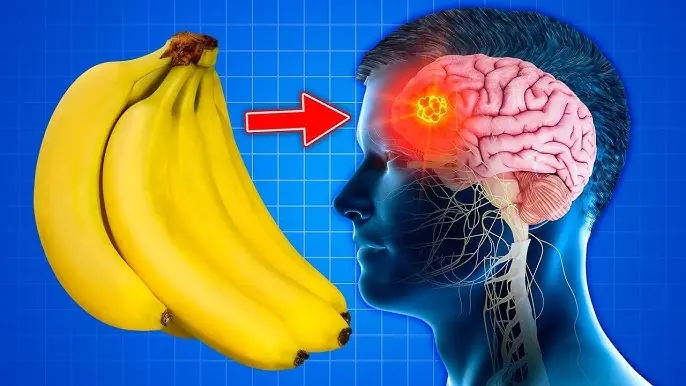
12 Early Warning Signs of an Aneurysm You Shouldn’t Ignore
An aneurysm is a potentially life-threatening condition where a blood vessel in the body weakens and bulges, creating the risk of rupture. If an aneurysm bursts, it can cause severe internal bleeding, leading to serious complications, including death. However, the good news is that aneurysms can often be detected early if you know what signs to look for. Recognizing these early warning signs can help you seek timely medical attention and improve your chances of successful treatment. Below are 12 early warning signs of an aneurysm that you shouldn’t ignore.
1. Severe Headaches
One of the most common early warning signs of a brain aneurysm is a sudden, severe headache. Often described as the "worst headache of your life," it can come on suddenly and with great intensity. If you experience a headache that is much stronger than usual or different from any previous headaches, it could be an indication of an aneurysm in the brain.
2. Vision Problems
An aneurysm in the brain can press on surrounding structures, including those that control vision. This can lead to blurred vision, double vision, or even loss of vision in one eye. If you suddenly notice any changes in your vision, it’s important to get checked by a healthcare provider.
3. Difficulty Speaking or Understanding Speech
An aneurysm in the brain may also affect your ability to speak or comprehend language. If you suddenly have trouble finding words, speaking clearly, or understanding what others are saying, it could be a sign of a serious problem, including an aneurysm.
4. Nausea and Vomiting
Nausea and vomiting are often associated with the sudden onset of a brain aneurysm, particularly if the aneurysm is close to or impacting the brain’s vomiting centers. This can occur even if there is no obvious reason, such as a stomach infection or flu.
5. Neck Pain
If you experience neck pain, especially combined with other symptoms like headache, vision problems, or nausea, it could be a sign of a brain aneurysm. This pain may result from the increased pressure caused by the aneurysm in the brain.
6. Sudden Loss of Balance or Coordination
Aneurysms affecting the brain can disrupt the areas responsible for motor control. This can lead to sudden dizziness, difficulty walking, or problems with balance and coordination.
7. Facial Weakness or Drooping
A brain aneurysm can affect the muscles on one side of the face, leading to weakness or even drooping of the eyelid or the corner of the mouth. This may resemble a stroke, and it requires immediate medical attention.
8. Shortness of Breath
An aneurysm in the chest, such as an aortic aneurysm, can cause shortness of breath. The bulging of the aorta can press on the lungs or heart, leading to breathing difficulties and a sense of tightness in the chest.
9. Sudden, Severe Abdominal Pain
An abdominal aneurysm can cause sudden and severe pain in the abdomen. This pain may radiate to the back and be associated with a feeling of fullness. It can be mistaken for gastrointestinal issues, but if it’s severe or persistent, an aneurysm should be considered.

10. Rapid Heart Rate or Irregular Heartbeat
Aortic aneurysms can cause a rapid heart rate or irregular heartbeat due to the disruption of normal blood flow. This can lead to feelings of palpitations or dizziness and should not be ignored.
11. Back Pain
Back pain, especially sudden or severe pain in the lower back, can indicate the presence of an abdominal aneurysm. If the aneurysm grows large enough, it can press against the surrounding tissues and nerves, causing back discomfort.
12. Lightheadedness or Fainting
If you experience lightheadedness, dizziness, or fainting, especially in conjunction with any of the above symptoms, it could be due to a ruptured aneurysm. Blood loss from the aneurysm can lead to a drop in blood pressure, causing you to feel faint or even lose consciousness.
Conclusion
An aneurysm can develop without noticeable symptoms, making it all the more important to be aware of the early warning signs. While not every symptom may necessarily be related to an aneurysm, recognizing the potential indicators and seeking prompt medical attention can save lives. If you experience any of the symptoms listed above, particularly if they occur suddenly or are severe in nature, don’t hesitate to seek emergency medical care. Early detection and treatment are crucial in preventing catastrophic outcomes, and knowing what to look for can make all the difference in preserving your health.
News in the same category


Teen Girls See Big Drop in Chemical Exposure with Switch in Cosmetics

11 Minute Practice to Slow Down & De-Stress

5 Subtle Skin Changes That Could Signal Cancer

Eat Bananas Every Day? Here’s What Happens to Your Body

If the future mother-in-law had known that the groom was from a wealthy family

10 Cancer Warning Signs Women Often Overlook

Getting up to pee often in the night could be a symptom linked to heart failure, research says

Things That No One Ever Tells You About Being A Functional Alcoholic

Natural Remedies for Sore Throat and Infections: Detailed Recipes, Tips, and More

To Know If Your Internal Organs Are Infected, Just Look at Your Feet. If There Are 3 Signs, You Need to Go to the Emergency Room

Natural Remedies for Snoring: How Leaves Can Help You Sleep Better

The Incredible Health Benefits of Bitter Melon Leaves

Unlock the Secret Power of Guava Leaves: Transform Your Hair, Skin, and Health Naturally

A Single Tomato Has Over 12,000 More Genes Than a Human

Growing Organs from Your Own Cells

RESEARCHERS FIND CANCER UNDO BUTTON, TURNING TUMOR CELLS BACK INTO NORMAL CELLS

WHEN YOU DON'T SLEEP WELL, YOUR BRAIN LITERALLY BEGINS EATING ITSELF

Neurologist Reveals The Single Scariest Thing People Are Doing To Their Brains
News Post

The Science Behind Autophagy: How Your Body Cleanses Itself

Teen Girls See Big Drop in Chemical Exposure with Switch in Cosmetics

11 Minute Practice to Slow Down & De-Stress

My Fiancé’s Mom Told Him to Leave Me for a Richer Woman

He Put His Hand On My Belly—Right In Front Of My Parents

My Husband Called Me Lazy for Wanting to Quit My Job While 7 Months Pregnant – So I Taught Him a Lesson He’ll Never Forget

My Ex-Husband Asked Me to Be a Surrogate for Him and His New Wife – It Ended Not as He Expected

All of My Right Shoes Kept Going Missing – When I Finally Found Out Why, It Shook Me to My Core

The Ultimate Guide to Using Baking Soda for Foot Care

The Unexpected Family on the Other End of the Line

When a New Beginning Uncovered Hidden Secrets: The Basement Discovery That Redefined My Life

5 Subtle Skin Changes That Could Signal Cancer

Eat Bananas Every Day? Here’s What Happens to Your Body

Refreshing and Healing: How to Make and Use Lemongrass Tea

One year ago: Discovering the Hidden Potential of Basil Flowers – Everything You Can Do With Them.

How dare you even touch the patient

My mother-in-law, who works with me, humiliated me in front of the entire office

The experienced doctor was only hired as a nurse after prison
